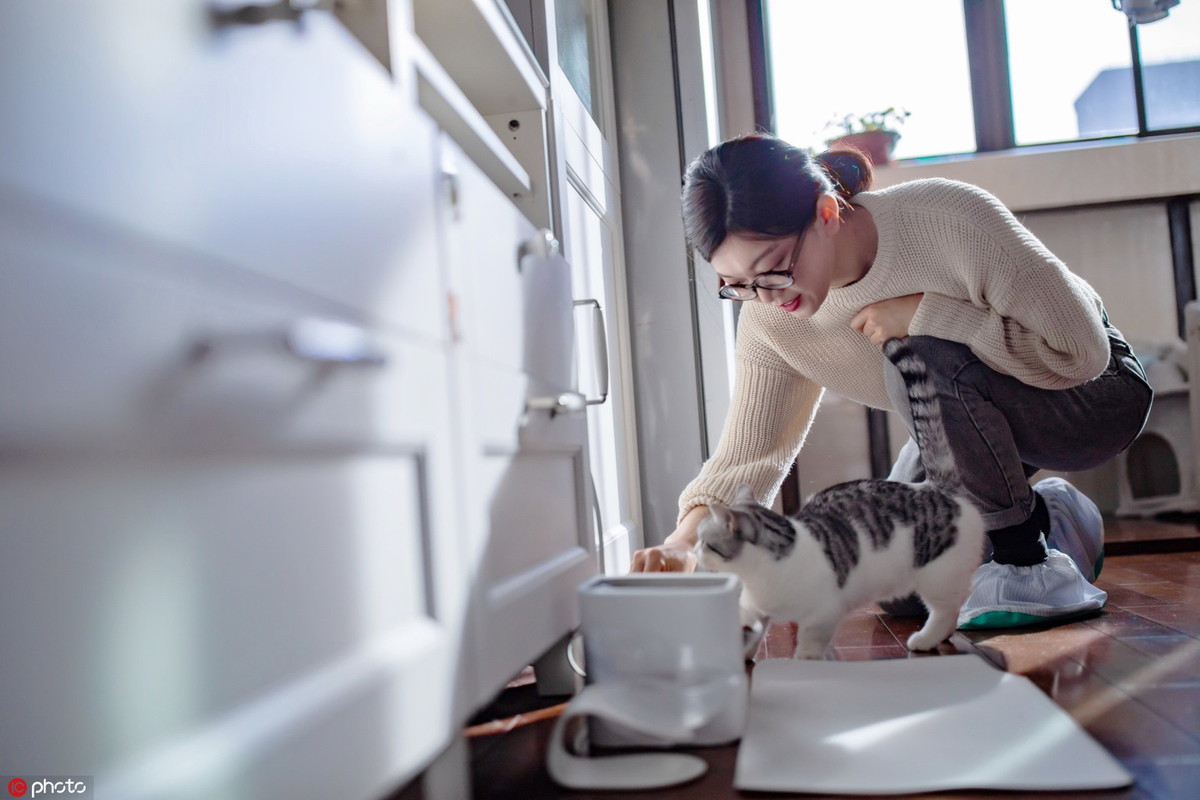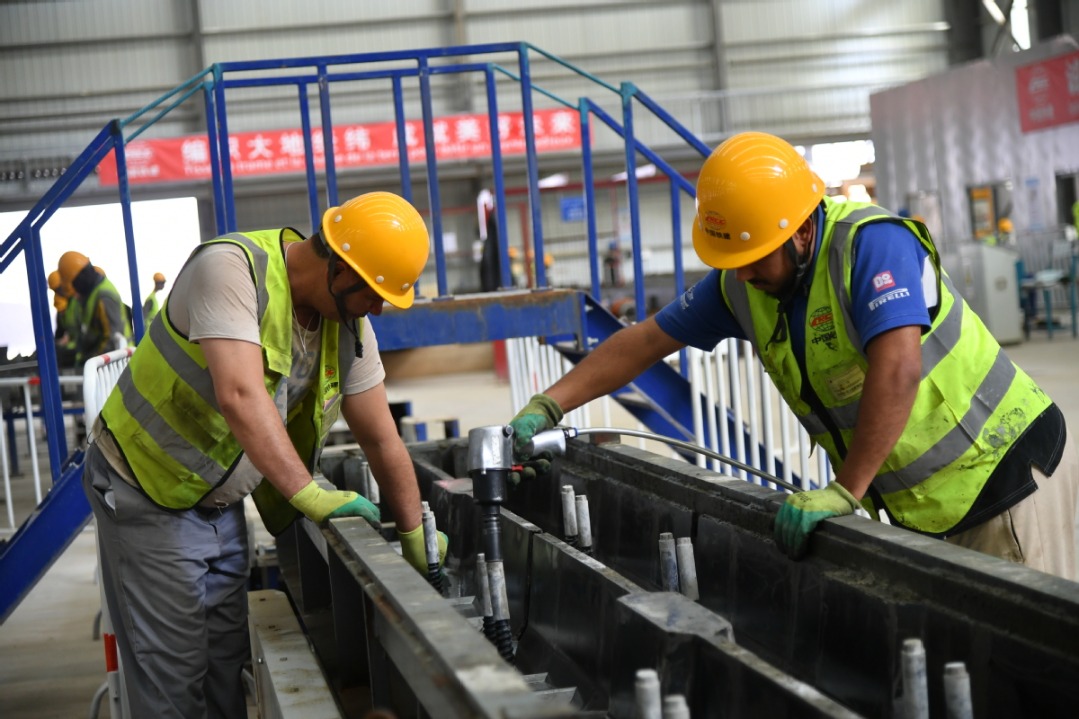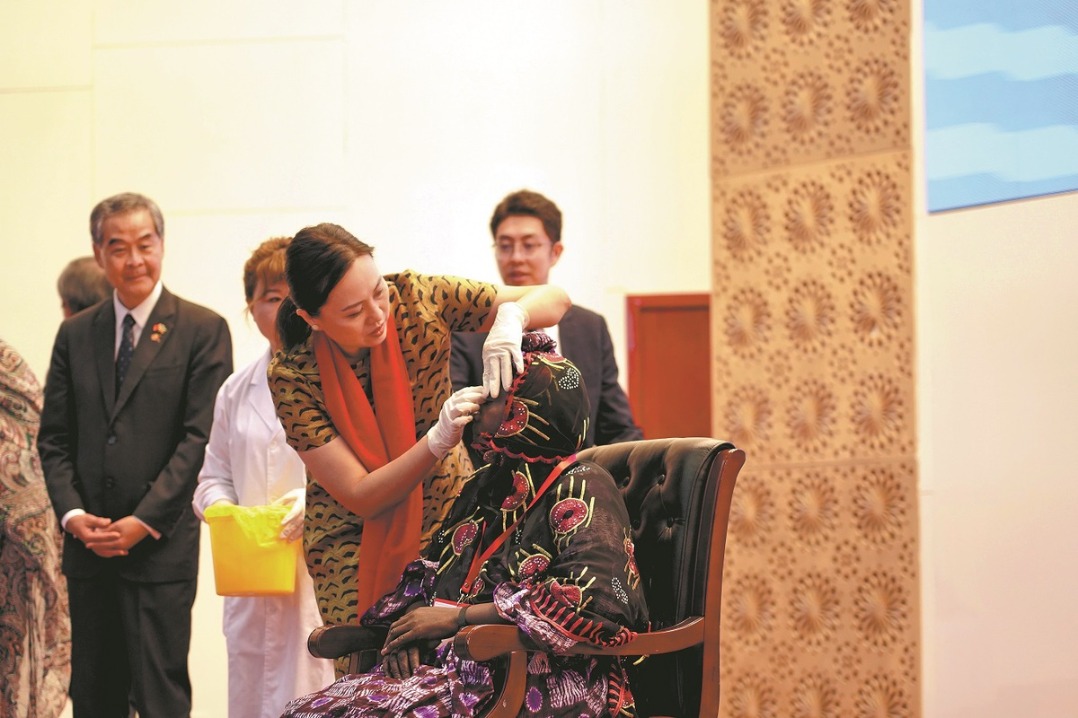In-home pet care thrives during Chinese New Year as people return to their hometowns


In-home pet care has emerged as a thriving business during the Spring Festival holiday as urban professionals leave their pets behind for family reunions, presenting both opportunities and challenges.
A woman surnamed You in Beijing said that she provided in-home pet care over 150 times from Feb 4 to 17, earning a total of 15,000 yuan ($2,100).
You mentioned that she fed 68 cats, two dogs, two chinchillas, two loaches, two turtles, as well as small fish and plants. She described her busiest day, leaving home at 6 am and not completing her tasks until nearly 1 am the next day.
"I was so busy during this Chinese New Year. I even missed having the New Year's Eve dinner while walking clients' dogs," she said.
In Hangzhou, the demand for in-home pet care during the holiday season was similarly high.
A woman surnamed Chen, working in Hangzhou, had planned early to leave her cat in the city. "Pet cats are sensitive and timid. They have poor adaptability to unfamiliar environments, so leaving them in a familiar place and having someone come in to help feed them is the best option," she said. She also considered pet boarding services at pet stores.
"Boarding a cat in Hangzhou generally costs between 100 and 200 yuan per day, totaling over 1,000 yuan for the entire Chinese New Year holiday. Compared to this, in-home pet care is advantageous in terms of both cost and the cat's comfort," she said.
A Hangzhou resident surnamed Gu has been providing in-home pet care for four years.
"The demand is generally concentrated during holidays, especially during the Chinese New Year. Normally, I might have one or two orders a day, but during the Chinese New Year, it could increase tenfold." Gu said. "Last Chinese New Year, I had a maximum of 23 orders in a single day," she said. This year, she took fewer orders to make it easy. "Probably about six or seven orders a day. I expect an earning of around 3,000 yuan," she said.
However, the business of in-home pet care is not without its pitfalls. On social platforms, many pet owners shared their experiences of encountering problems.
Some said, "After feeding the cat once, the caregivers didn't respond to messages, neglecting the call and not returning the key." Others complained, "The hired pet caregiver had no experience, only adding food without water."
Some users mentioned that the caregiver might have carried viruses, leading to their own cats contracting feline distemper.
You, the caregiver in Beijing, mentioned that during her visits for in-home pet care, she had been scratched. Regarding potential property disputes, You said most households have surveillance cameras.
A client of You surnamed Zhang said: "There's platform endorsement. The caregivers also need to pay a deposit and get certified, so I feel it's safe."
As for the risk of cats running out when the door is opened, You said she would enter with a small gap, use something to block the cat, and then quickly sidestep inside. There have been no cases of pets escaping, she said.
Xia Lei, a lawyer from the Jiangsu Consumer Council, said that pet caregivers should possess professional skills, understand the basic habits of pets, and have solutions for unexpected animal contact.
Xia suggested that consumers choose reputable in-home caregivers, establish a written contract, and define the responsibilities of both parties. Those intending to work long-term in the pet care industry should enhance their skills and purchase relevant insurance, such as liability insurance and accidental injury insurance, to reduce the likelihood of disputes.
- Nation's space shuttle set to improve efficiency, cut costs
- China's new Preschool Education Law defines types of bans on individuals
- Heavy snowfall hits northern Xinjiang, fog and smog sweep north-central regions
- Eggs from Ningxia make fast, cool trip to Hong Kong
- Cultural tourism blooms in Greater Huangshan Region
- China's large neutrino observatory nears completion





































